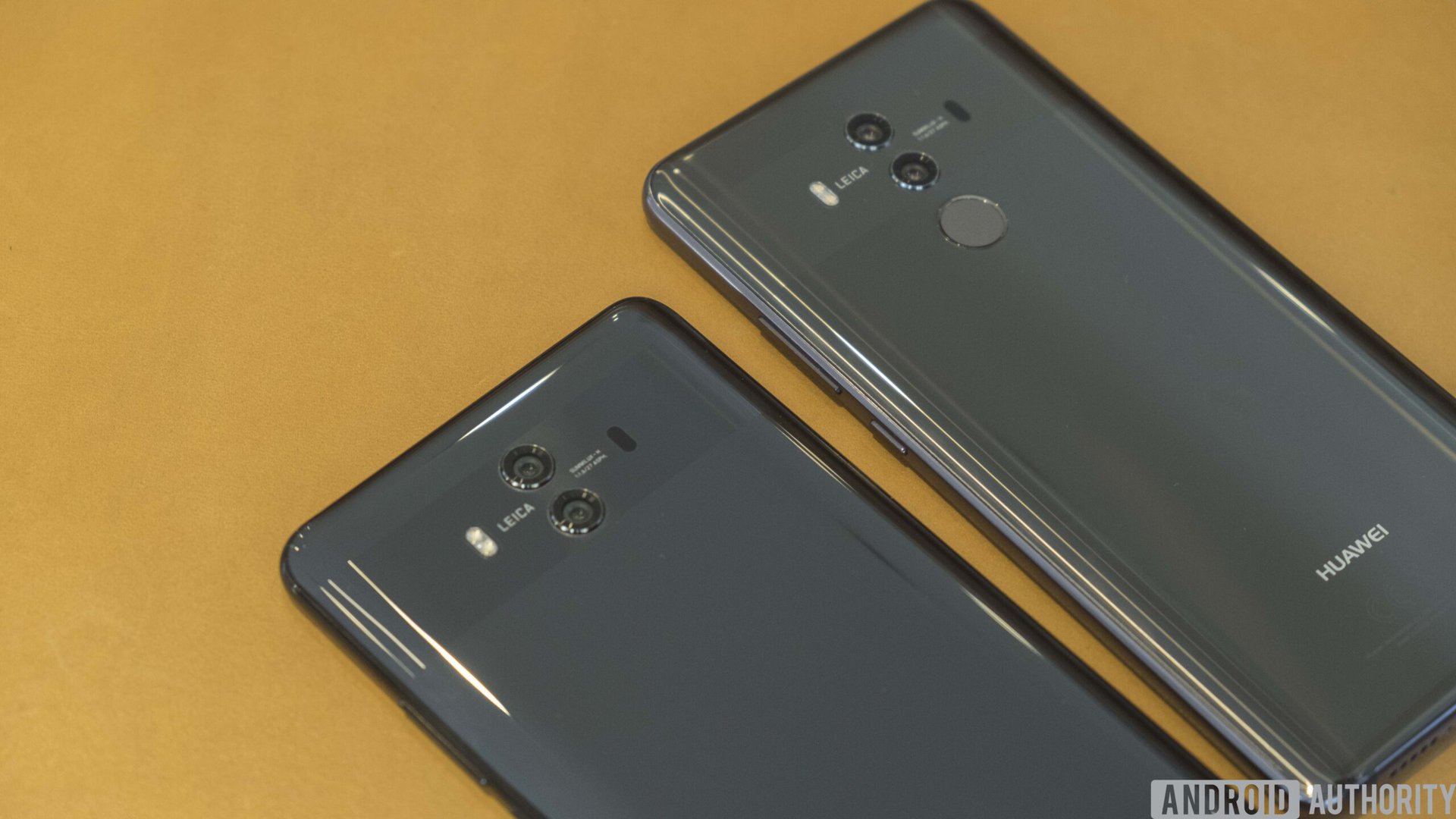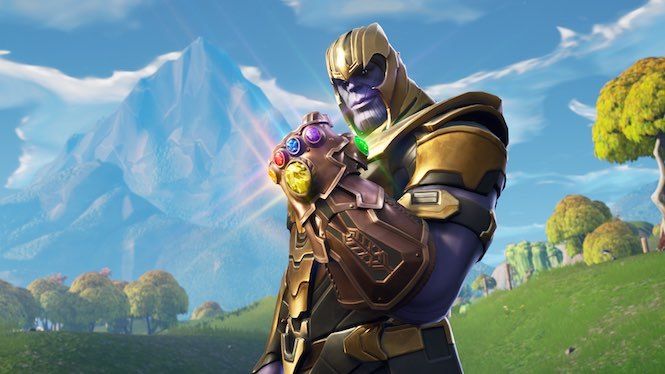Affiliate links on Android Authority may earn us a commission. Learn more.
Fortnite for Android interview - Epic Games CEO Tim Sweeney on breaking away from Google Play
Published onAugust 8, 2018

When Fortnite: Battle Royale launched, it was an instant hit, thanks to its more colorful and lighthearted take on the battle royale genre. Indeed, the game has since crossed over from just being a popular video game to becoming a mainstream phenomenon. According to developer Epic Games over 125 million people worldwide had played the game by early June. In early 2018, Epic Games made another surprise announcement, revealing that it would launch Fortnite: Battle Royale for mobile devices, with full cross-play support for all of the game’s other platforms (except PS4). At the moment, there are no announced plans to bring Fortnite’s original survival mode to mobile devices.
Read Next: Fortnite on Android first look – you might want to wait off…

The mobile version of the game launched first for iOS devices, and very soon Epic plans to launch Fortnite for Android as well (rumors claim that it will be available later in August as a timed exclusive for the upcoming Samsung Galaxy Note 9, but neither Epic nor Samsung have confirmed those rumors). Epic confirmed the launch of Fortnite for Android will not be made via the Google Play Store, generating tons of online discussions on the pros and cons of such a move (check out some of our thoughts in our recent editorial).
We had questions about the launch of Fortnite for Android, and the move by Epic to release the game with its own launcher. Epic Games was kind enough to accept our emailed interview questions, which were answered by Tim Sweeney, the co-founder and CEO of the developer.
Also read: Fortnite for Android: All we know so far | All the confirmed Fortnite for Android supported devices
Android Authority: In the past, you were critical of Microsoft for its development of the UWP format for Windows 10 apps, fearing it might start a trend to have all Windows apps go through the Windows Store. Was this part why you wanted Epic to launch Fortnite for Android with your own launcher, instead of the Google Play Store?
Epic CEO Tim Sweeney: These are separate efforts with a common motivation: Epic supports open platforms, we’re fighting to keep them open, and we want all developers to be free to have a direct relationship with their customers if they choose.
AA: You also stated bypassing the Google Play Store will allow Epic to retain the 30 percent of revenues it would normally give to Google. Why was it important to break from the norm from Android apps in this respect, especially since Fortnite is available via app stores for PS4, Nintendo Switch, Xbox One, and iOS, with that kind of business model?
TS: We’re doing it because we can! Android is an open platform in which users are free to install software from sources they choose. We concluded that Fortnite uniquely has enough reach and momentum to move Android’s openness out of the realm of theory and into mainstream practice. We’d love to see Apple open up iOS in this way too.

AA: Did the Google Play Store not being in China have any effect on your decision to bypass the Play Store for the Fortnite Android launch?
TS: In China, there is a vibrant ecosystem of software stores, including stores operated by manufacturers like Xiaomi, and publishers like Tencent and NetEase. It’s proof that Android can operate as a truly open platform while still respecting security.
AA: What measures is Epic Games taking to ensure the safety of Android users when it comes to downloading unregulated APKs from the internet?
TS: We’re working to spread the word that Fortnite will only be available on the web through epicgames.com on Android, as has always been the case on PC and Mac. And we’ll be fighting legal battles against any scam sites that arise.

AA: What kind of guarantees does Fortnite plan to offer parents who are concerned about the lack of Play Store parental controls and refund policies offered by a direct distribution model?
TS: Upon installation, it’s impossible to spend money in Fortnite until you provide payment details in the form of a credit card or PayPal. Fortnite then supports one-time payment methods so a parent can purchase in-game currency without giving their child permanent real-money spending capability. Finally, our customer service team is online to help if any problems arise. We’ll be adding more functionality over time.
AA: If Epic Games is successful in this launch of Fortnite for Android, do you think it could encourage other app creators to also bypass the Google Play Store? What benefits will there be for both app creators and consumers?
TS: Absolutely. We can expect the long-term benefit for gamers to be more choice in software, and more competitive economics for developers. These factors will be critical as mobile gaming moves upmarket with console-quality experiences like Fortnite, PUBG, and Ark: Survival Evolved.

AA: What response have you received from Google after you announced Fortnite would not launch in the Google Play Store? Did the company try to convince you to change your mind, perhaps via special incentives?
TS: We’ve had robust discussions with Google about our plans! But Epic is motivated by open platforms and the direct customer relationship above economics. We didn’t seek, and Google didn’t offer, special revenue-sharing terms for Google Play. Ultimately, Epic’s and Google’s interests are aligned in far more areas than not, and we’ll continue working together to advance Android as a great gaming platform.
AA: How will Epic handle updating the app without the Play Store? Will users have to sideload the APK every single time there’s a patch?
TS: The Fortnite APK we’ll host on epicgames.com includes an installer/updater which keeps the product up to date. On Android Oreo and later, the user need only grant it installation permissions once. On earlier devices, installing an update prompts the user to turn on “allow unknown sources” in Android settings, and that can be turned back off once installation completes.

AA: You stated in an interview that Fortnite for Android would be supported by only a fraction of the Android devices currently on the market. Will that fraction be enough for the game to be successful financially, and do you plan to expand support of the game to more older Android devices in the future?
TS: There are between 250 and 300 million Fortnite compatible Android devices, so it will be a big platform for us! After launch, we’ll be expanding device compatibility only a little. Fortnite is the same, cross-play compatible experience across all platforms and is constantly growing with new features like cloth and vehicle physics. So our huge ongoing optimization efforts go more towards new features than expanding device reach.
AA: You stated that Fortnite for Android will not support Bluetooth game controllers, at least at first. Are you anticipating any issues with people trying to modify the code of the game on their phone in an attempt to add modded controller support?
TS: Players should wait for official support, which we’re working on. Our Fortnite anti-cheat efforts are aimed at catching any modifications to code, as we can’t distinguish good versus bad intent in such mods.
AA: Finally, in the past year we have seen a small trend of Android smartphones that are being marketed specifically for gamers, including features like overclocked processors, higher refresh rates than normal for displays, and other features. Do you think this trend will continue and do you see Android evolving into more of a Windows-style of OS as a result, with a more open platform and a way for hardware and software companies to experiment with high-end gaming?
TS: I’m super-excited to see the emergence of specialized Android devices. That’s one of the great strengths of an open device ecosystem, that we’ll see a range of hardware all the way from high-end gaming down to sub-$100 devices for developing countries.
We would like to thank Tim and the PR team at Epic Games for responding to our email interview request.
What do you think about Tim’s answers about their decision to bypass the Google Play Store for the launch of Fortnite for Android? Let us know in the comments!
Next: Fortnite vs PUBG Mobile: What’s the best battle royale game?